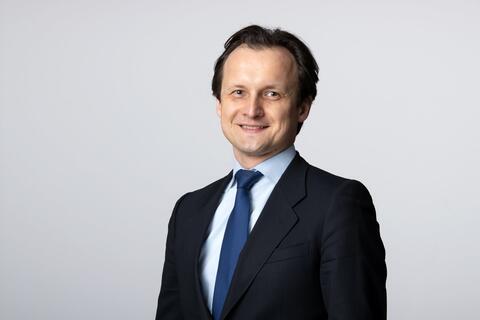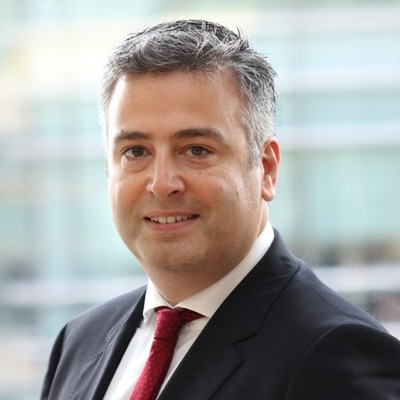Key information
Programme Overview
In today's dynamic business environment, geopolitical instability and emerging risks pose a significant challenge for executives.
Designed and delivered by Executive Education Imperial Business School, our Risk Management course equips you with the knowledge and tools to navigate uncertainty and make informed decisions.
The programme is expertly designed to help you future-proof your strategies by gaining a deep understanding of risk management principles to effectively address geopolitical and economic uncertainties.
You will learn how to identify, measure and manage risks across both financial and non-financial risk categories, including climate and information risks. Through experiential learning, you will engage in a dynamic scenario that challenges you to manage uncertainty and respond under pressure, strengthening your decision-making and leadership skills. Additionally, a visit to our state-of-the-art Data Observatory will provide valuable insights into big data analytics and predictive risk management.
Throughout the programme, you will look at both qualitative and quantitative approaches to risk management, evaluating the strengths and weaknesses of different risk measures and scenario analysis. You will also examine the impact of behavioral biases on decision-making, and address emerging risks, such as cyber threats and climate change, offering practical insights into real-world challenges and advanced risk management strategies.
Discover how to overcome biases and achieve successful risk management. Join us on this journey and gain the knowledge and skills needed to excel in the fast-paced world of risk management.
Who should attend?
The Imperial Risk Management programme blends the latest quantitative research and the practice of intelligent risk management strategies to expand your understanding and managerial capabilities.
The programme convenes a breadth of executives from diverse geographies, industries, sectors and functions, including:
- Finance managers aiming to refine their understanding of risk regulation and practice.
- Risk/portfolio managers seeking to optimise capital allocation across multiple investments
- Consultants aspiring to broaden their expertise in risk management techniques and tools
- Managers and senior managers responsible for setting and implementing strategic direction within their organisations
- Leaders responsible for risk, resilience, business continuity, or crisis management looking to elevate their strategic thinking on resilience to a more advanced level.
- Entrepreneurs who need to manage the risks associated with establishing and growing their business.
Learning objectives
You will emerge from the programme with the understanding and the refreshed capabilities to:
- Explore recent trends in risk management in both corporate and financial sectors by analysing industry developments and emerging practices.
- Identify and mitigate individual behavioural and organisational biases to implement optimal risk management strategies effectively.
- Assess risk management practices and frameworks and apply them to real-world industry contexts.
- Identify and apply statistical knowledge and tools for effective risk management.
- Master strong foundations for statistical knowledge and the tools of effective risk management,
- Analyse innovation in risk management practices arising from paradigm shifts in insurance, asset management and global banking.
- Explore the role of corporate governance and its link to risk.
- Discover how to manage risk in complex and derivative portfolios, and the strategies and techniques to manage exotic risks such as climate change risks.
Learning Journey
Your learning is enriched by insights from faculty, industry leaders and real-world case studies that help translate concepts into practice.
Imperial’s Risk Management programme challenges you to think critically and creatively about risk.
Build Risk Foundations
Day 1 focuses on laying a solid foundation, starting with brief introductions and setting expectations for the programme. Participants explore the evolution of risk management, risk culture, and enterprise risk management. The day concludes with the introduction of Learning Labs to identify key takeaways and personal risk leadership challenges.
Adopt an Analytical Mindset
Day 2 focuses on measurement and analysis. You will learn how to apply statistical techniques, explore practical risk measurement frameworks, and gain confidence in using data to inform business decisions. The day also examines exotic risks and their growing impact on organisations.
Embrace the Finance Sector
Day 3 turns to the financial sector, exploring how risks are managed in banking and financial institutions. You will examine market risk, portfolio management, and the role of finance in risk mitigation, while also navigating climate risk and carbon markets.
Facing Key Risks Today and Tomorrow
Day 4 addresses fast-evolving risks, from AI-driven threats and cybersecurity challenges to the complexities of insurance. You will also take part in an immersive experience at Imperial’s Data Science Institute, applying machine learning and data-driven approaches to risk analysis.
Risk Management in Practice
Day 5 brings together your learning across the programme. You will evaluate non-financial and operational risks, consider the evolving demands of the modern CRO, and participate in a final Learning Lab. Through peer discussions and faculty feedback, you will refine your personal risk challenge and leave with a tailored action plan to strengthen your leadership in risk management. des.
Programme Faculty and Experts

Steve Marshall
Steve is an experienced developer of senior leaders with 30 years’ experience which covers organisation development, leadership, and strategy implementation.
Steve held corporate roles in UK retail and global banking businesses covering UK, Asia, Middle East, and the Americas. His work has covered both the behavioural and technical aspects of leadership including sustainability, risk and creating economic value.
He now works with leading business schools and leadership development companies as programme director, facilitator and subject expert in leadership and learning design. Clients have included leading global brands in retail, manufacturing, financial services,and logistics.
His education is in Economics, Human Resource Management and he holds a Masters in Individual and Organisation Development. He holds Fellow status with the Chartered Institute of Personnel and Development in the UK.
Professionally Steve has worked in HR, marketing, governance and post-acquisition roles, as well as specialist global roles in learning, talent development and succession, performance management and job design.

Robert Kosowski
Professor of Finance and Head of the Finance Department at Imperial Business School
Professor Kosowski is a research fellow at the CEPR and an associate of the Oxford Man Institute. Previously he was Head of Quantitative Research at a £20 billion asset management firm and specialist adviser to the UK House of Lords.
Professor Kososwki’s research has been published in the Financial Times and Wall Street Journal.

Enrico Biffis
Associate Professor of Actuarial Finance at Imperial Business School
Enrico Biffis is Associate Director for Development Finance at the Brevan Howard Centre for Financial Analysis. He has collaborated extensively with industry and been the recipient of grants and awards for his research on the modelling and hedging of large risks.
Enrico Biffis has expertise in risk analysis, asset-liability management, and the design of predictive analytics and risk management tools for a variety of asset classes.

Jose Ribeiro
Independent Non-executive Director, Starr Companies and the Hansard Group
Seasoned CEO/Chairman, based in London, with a demonstrated history of working in financial services globally. Has been an executive board member in a variety of jurisdictions around the world (UK, EU, HK, China, Brazil, Bermuda and Singapore). Skilled in managing P&C and Life insurance companies as well as insurance brokers with a global footprint. Has a MSc in Applied Mathematics and an MBA in International Business Management. Jose is the Chairman of the Board at Starr Insurance Companies; Chairman of the Board at Yurtle and Senior Independent Director (SID) and Chairman of the Remuneration Committee at Hansard Global.

Rochelle Lucas
Rochelle has spent the last three years at the London Stock Exchange Group as the Chief Risk Officer and more recently the Chief Operating Officer for Capital Markets. In these roles she is responsible for embedding risk management within the business. This includes driving improvements in risk culture, managing financial and non-financial risk and managing governance at an Executive and Board level.
Prior to joining LSEG, Rochelle was the Chief Control Officer for the Commercial Bank at HSBC. At HSBC, Rochelle built out the risk framework across several areas including third party, technology, cyber and model risk. Prior to that, Rochelle spent 15 years at Goldman Sachs in London, Bangalore, Sydney, and New York, with leadership roles in Operational Risk, Internal Audit, and program delivery.

Zbigniew Kominek
Zbigniew Kominek is the Managing Director, Head of Finance at the European Bank for Reconstruction and Development (EBRD) in London. He is responsible for financial and operational planning, financial policies, budget and financial reporting.
Zbigniew joined the EBRD in 2003 and worked in several roles in the Office of the Chief Economist and the Risk Management department, including as the Director, Risk Policy and Analytics in charge of quantitative risk models, model validation, stress testing, risk data analysis and risk policy framework. Prior to joining the EBRD, he worked as an economic consultant on regulation of network utilities and competition issues in the UK.
Zbigniew holds a PhD in Economics from the University of Leicester (UK), master degrees in Finance and Quantitative Analysis from the Warsaw School of Economics (Poland) and an MBA from the Booth School of Business at the University of Chicago. Zbigniew’s research has been published in leading journals, including the Journal of Finance and the Journal of Applied Statistics.

Gbemi Oluleye
Dr. Gbemi Oluleye is Associate Professor in Sustainable Market Mechanisms at the Grantham Institute, Imperial College London. She heads the Market Interventions for Deep Decarbonisation Lab. With over 15 years’ consultancy experience, she has advised global clients including the World Bank, United Nations Industrial Development Organization (UNIDO), Schneider Electric, Scottish Power, BP, Skydiamond and the OECD. Her work equips financial institutions, and corporates to manage climate risk, understand carbon markets, and carbon-linked market mechanisms, assess carbon value at risk, and guide investment decisions in climate mitigation. She also supports organisations in accelerating clean technology uptake and aligning transition strategies with long-term competitiveness.

Christian Pedersen
Dr Christian Pedersen is a global expert in risk management, strategy, and transformation, with 25 years advising CEOs, CFOs, CROs, CTOs, and regulators across financial services, trading, energy, and government sectors in Europe, the Middle East, and Asia-Pacific. His expertise spans risk & compliance (ERM, credit, operational, technology risk, AML), strategy & transformation (business model redesign, M&A, tech-enabled change), finance & treasury (risk-adjusted performance, stress testing, capital/liquidity optimisation), governance, and regulatory affairs. Formerly a senior leader at Accenture and Oliver Wyman, he has built practices, led major transformations, and driven regional growth. Christian holds a PhD in Finance and MPhil in Economics from Cambridge, as well as an MSc in Mathematics and the top BSc Economics of his year from LSE. Now advisor to a boutique consultancy, several FinTechs and aspiring CROs, he combines deep technical expertise with strategic insight and practical experience to address complex risk management challenges.

Markos Daskalakis
Markos is a seasoned Executive with over twenty years of experience in Internal Audit, Risk Management, Business Controls, Finance and Accounting. His career spans senior leadership roles at Deloitte and top-tier financial institutions including NatWest and JPMorgan across Europe, the Middle East and Africa. He has advised Boards and Audit Committees on governance, risk oversight, and strategic alignment and currently leads a portfolio career as a non-Executive Director and Chair of Audit Committees. Concurrently, Markos lectures internationally, helping senior professionals translate complex risk frameworks into practical strategies. Markos is a Fellow of the Institute of Chartered Accountants in England & Wales, a Certified Internal Auditor (IIA, USA), a Certified Information Systems Auditor (ISACA, USA) and holds a Master’s degree in Civil and Environmental Engineering from Imperial College.
